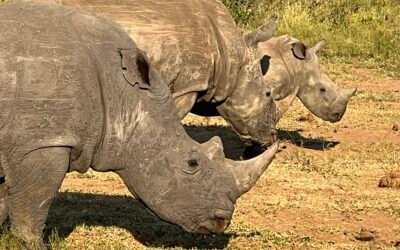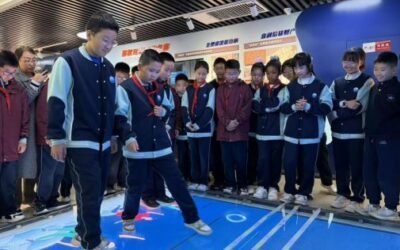The abolition of private property and a radical criticism of the family are rooted more in the idea of the spiritual community as a living entity than Marxism.
by Massimo Introvigne
Article 4 of 6. Read article 1, article 2, and article 3.
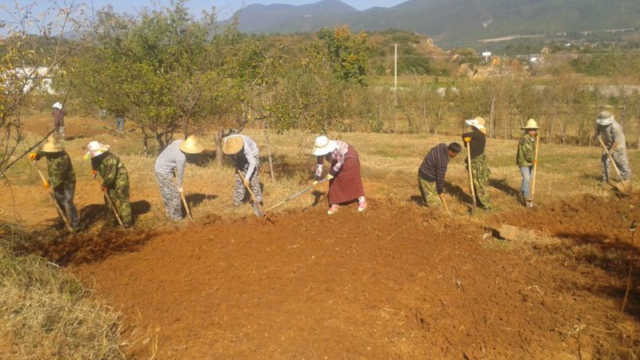
Like many observers, when my study of Lifechanyuan started, I was struck by its founder’s use of the term “Xuefeng Communism.” Guide Xuefeng was once a member of the Chinese Communist Party. He occasionally quotes Marx and Mao, and his writings reference utopian socialism and revolutionary ideals. The Chinese police, in their crackdown, seemed to interpret the movement as a quasi-political commune. Even the New York Times journalist who visited Lifechanyuan in 2014, when it was still tolerated in China, emphasized its Communist echoes.
But after visiting the Thai Second Home in September 2025, I realized how misleading that framing can be. None of the Celestials I met had been CCP members. Only one—a former Taoist monk—expressed fascination with the Mao era. The rest were spiritual seekers who had journeyed through Christianity, New Age teachings, and even Falun Gong. One had read Rhonda Byrne’s classic self-help book “The Secret” and the writings of Taiwan’s New Ager Tiffany Chang (張德芬). Another was concerned about the “Maya” prophecy of 2012. Guide Xuefeng himself had a passage through the Jehovah’s Witnesses.
Xuefeng’s list of references is long. “The creation of the Communist community—the Second Home—draws inspiration from the teachings of Jesus Christ, Buddha Sakyamuni, the Immortal Laozi, Prophet Muhammad, and sages of past generations. It originates from the descriptions of the Greek philosopher Plato and the Chinese sage Confucius; from the thoughts of Marx, Engels, Lenin, Mao Zedong, the founders and pioneers of communist theory; from the ideals of utopian socialists and practitioners such as Owen, Saint-Simon, and Fourier; from the wishes of diligent, kind-hearted, simple, sincere, and trustworthy ordinary people; and from more than two millennia years of human experiments in thousands of utopian communities.”
What I encountered in Thailand was not a political commune, but a spiritual experiment—radical, joyful, and deeply intentional. “Xuefeng Communism” is not Marxism with incense. It is a new model of living, rooted in metaphysics, ethics, and a vision of humanity’s future.
However, the Second Home is indeed defined by the lack of private property. Members do not own their clothes, phones, or furniture. All belongings are shared. Each community has a member responsible for financial matters. If someone needs a shirt, a notebook, or a bus ticket, they ask the member in charge of procurement, who will buy it for them. For more expensive items, members must consult the branch director or, in cases like flight tickets, Guide Xuefeng himself. The branch director oversees the branch’s overall operations. However, he is not considered a “leader.” He acts as a facilitator.

“Members of the Communist community—the Second Home—possess nothing personally,” proclaims Xuefeng. “No individual owns private property or money. Everything belongs to the community, not to any individual. Each person may freely enjoy everything in the community according to their needs, provided there is no extravagance or waste.”
This ethos is not enforced through rules or surveillance. It is lived. Members told me they feel liberated by it. “I used to worry about bills, rent, and savings,” one Celestial said. “Now I just live.”
Everyone works. There are no bosses, offices, or titles. Tasks are chosen based on interest and skill. One member tends the garden, another cooks, and a third manages the website. The community’s core text, “800 Values for New Era Humanity,” states that “there is no place for lazybones or parasites.”
The Marxist principle, “Contributing according to ability, receiving according to need,” is proudly proclaimed but reinterpreted. “Every person’s abilities and physical strength differ. In the community, as long as each member contributes their best effort daily within their own capacity, it is enough. No one is forced to do what they cannot. Whatever an individual needs is fully provided, so there is no issue of distribution.” Guide Xuefeng calls this “Hundunic Management”—a form of “non-management” where everything flows naturally. “Hundun” (浑沌) is a term indicating the primordial chaos, but is used by Xuefeng to allude to the holographic nature of the universe. He insists that ultimately “Hundun is not chaos—it is order. Hundun is governed by meticulous rules, leaving no room for loopholes.”
“Hundunic Management means ‘non-management,’ for the highest level of management is no management at all—letting everything follow natural principles, with completely humanized administration. Therefore, in the community, there are no leaders, no offices, no managers. Everyone is a manager; everyone is the master of the community. There are no superiors and subordinates, no social classes—everyone is equal.”
In practice, hierarchy is minimal. A woman in the Thai Second Home has been with Lifechanyuan almost since its beginning. Members told me she is expected to be the next spiritual guide when Xuefeng dies. I saw people ask her for clarification on complex principles. But she does not lead in any conventional sense. Her authority is quiet, relational, and earned.
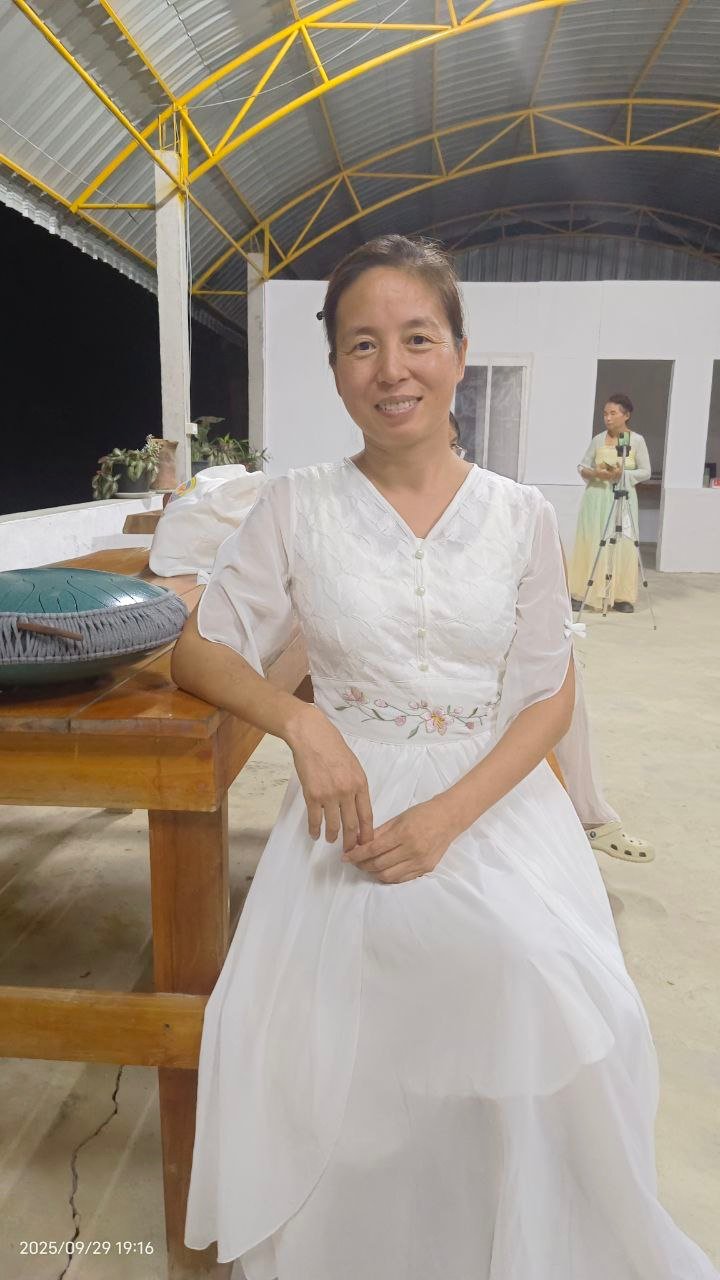
The community’s structure reminded me of anarchist ideals from the 19th and early 20th centuries—horizontal, cooperative, and fluid. However, unlike anarchist experiments, Lifechanyuan is not driven by resistance. It is driven by joy.
The most radical aspect of Lifechanyuan is its rejection of the nuclear family. Members do not marry. The “800 Values” describe families as “the root cause of suffering and afflictions.” “Marriage and family,” insists Xuefeng, “are the breeding ground of selfishness, the source of worries and pain, and the root cause of endless exploitation and waste of natural resources. Therefore, in the Communist community—the Second Home—there is no marriage and no family.”
The rejection is uncompromising, as we read in the “800 Values”: “Wherever families exist, so will endless misery and suffering; if we do not deal with the root cause, then the misery and suffering will remain and never end. Buddha, Jesus Christ, and Bodhisattva Guan Yin could not help even if they were still in the mortal world; were families to exist in heaven, even heaven would become an abyss of misery.”
This is not a rejection of love or sexuality. “Fully enjoying emotional love and sex love accords the will of the Greatest Creator and is a part of beautiful life that cannot be ignored and expropriated.” “As long as both parties are attracted to each other, they can do whatever they feel is appropriate; nobody supervises, interferes, bothers, gossips, or backsides; lovers never possess, occupy, or are jealous of each other.” “There is no family, marriage, or husband-wife relationship in the Second Home. Once inside the Second Home, everyone is free and is free from any bondage and shackles in the matter of emotional love and sex love. On the basis of mutual consent and within the code of civility, one will not be subject to any form of restraint and supervision in his or her emotional life and sex life. Anyone who attempts to limit and supervise others’ freedom of emotional love and sex love has deviated from the values of Chanyuan and will not be entitled to live in the Second Home.”
However, Celestials are taught that, if they become excessively attached to them, affection and love that “exceed the proper amount” may become “the poison of life.” They try “not to engage in one-to-one romantic relationships,” as they may destroy the communal ethos.
They are not opposed to childbirth. However, the idea is that children should be educated by the community, not by individual parents. Ideally, they should not even know who their biological parents are (but this is not the case with the only child living in the Thai Second Home, who was not born there; his parents joined when he was four). “The elderly are cared for by the community, and children are raised and educated by the community. Children no longer worry about parents, and parents no longer worry about children.”
Lifechanyuan is not ascetic. It is celebratory. Members sing and dance. They create art—not for prestige or profit, but as an offering to the Greatest Creator. One Celestial told me, “Creating beauty makes the Creator happy. And it makes us happy too.”
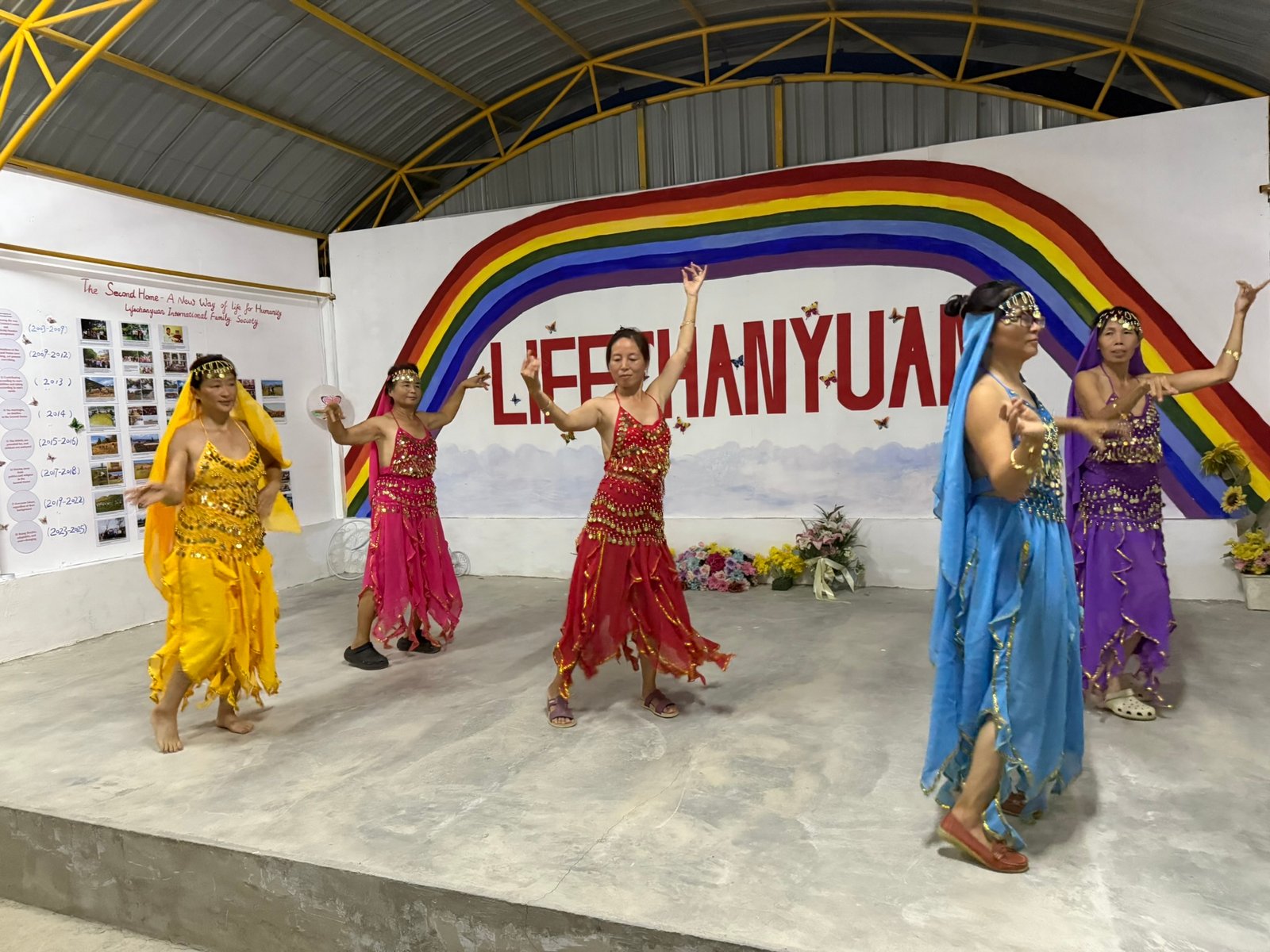
There are no religious icons, rituals, holidays, altars, incense, or sermons. Spiritual experiences are personal. Nature is the only temple.
“The Communist community—the Second Home—does not engage in any political activities, nor religious rituals,” explains Xuefeng. “All activities follow the principles of nature. There is no idol worship, no political or religious holidays or ceremonies. Instead, members love the mountains, rivers, grasses, and trees, and protect insects, birds, animals, and all of nature.”
This reverence is woven into daily life. Waste is minimized. The community feels like a living organism—sensitive, responsive, and alive.
Lifechanyuan rotates tasks, changes residences, and reshuffles social dynamics to prevent stagnation. “To enrich cultural life and inner development, to encourage love of life, love of living, and love of existence, residences are frequently changed, work shifts according to need, personnel rotate, and recreational and game activities are constantly renewed.” “Two people cannot remain together long-term; everyone is always in a fresh environment.” The principle—called “Flexibility and Harmony”—is designed to keep entropy low and creativity high. It avoids cliques, factions, and “feudal divisions” (a term that, curiously, Lifechanyuan borrows from official CCP language). It ensures that the community remains dynamic.
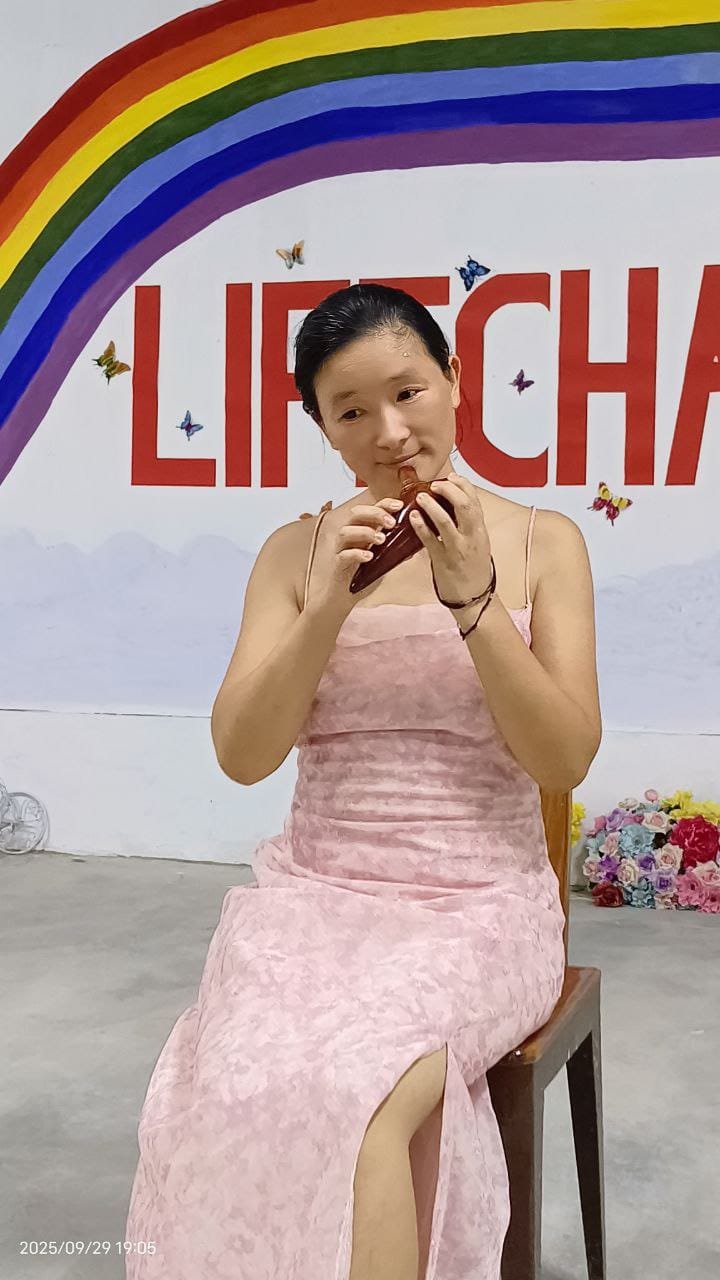
Members told me that this constant change can be challenging. “Sometimes, I want to stay in one place,” one woman said. “But then I remember—life is movement. And movement is freedom.”
Guide Xuefeng sees Second Home as more than a community. He sees it as a prototype for humanity’s future. “We have already paved a sunlit path for humanity. In the Communist community—the Second Home—people basically live happily, joyfully, freely, and blissfully.”
It is a bold claim, but after spending time in the Thai Second Home, I understand its appeal. Lifechanyuan offers a vision of life beyond ownership, hierarchy, and isolation. It is not perfect and not for everyone, but it is sincere, coherent, and lived.

Massimo Introvigne (born June 14, 1955 in Rome) is an Italian sociologist of religions. He is the founder and managing director of the Center for Studies on New Religions (CESNUR), an international network of scholars who study new religious movements. Introvigne is the author of some 70 books and more than 100 articles in the field of sociology of religion. He was the main author of the Enciclopedia delle religioni in Italia (Encyclopedia of Religions in Italy). He is a member of the editorial board for the Interdisciplinary Journal of Research on Religion and of the executive board of University of California Press’ Nova Religio. From January 5 to December 31, 2011, he has served as the “Representative on combating racism, xenophobia and discrimination, with a special focus on discrimination against Christians and members of other religions” of the Organization for Security and Co-operation in Europe (OSCE). From 2012 to 2015 he served as chairperson of the Observatory of Religious Liberty, instituted by the Italian Ministry of Foreign Affairs in order to monitor problems of religious liberty on a worldwide scale.

